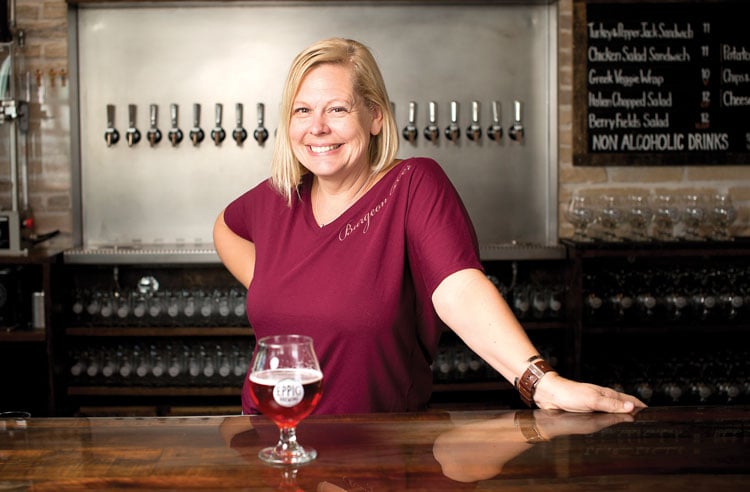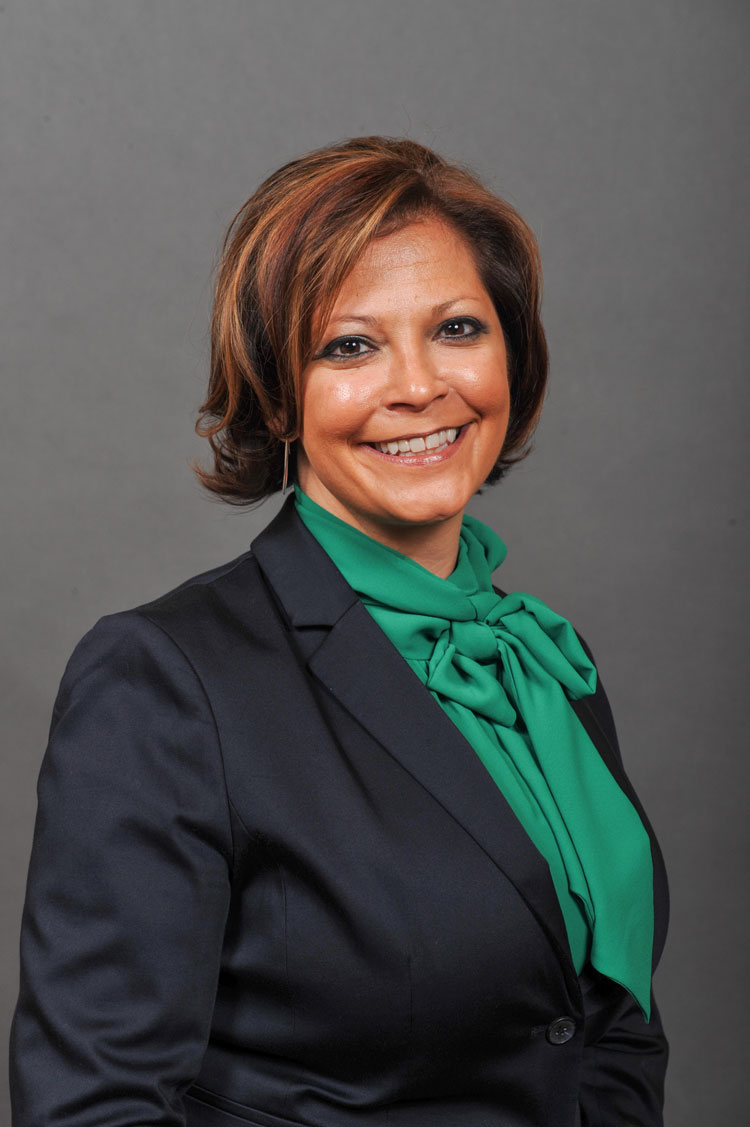Building a niche law practice rewards extra work, special training

Photo of Candace Moon by Earnie Grafton
Like many students struggling to cope with the staggering costs associated with attending law school, Candace Moon decided to take on a side job as a bartender. Moon, who graduated from the Thomas Jefferson School of Law in 2007, could have worked in any number of bars in San Diego slinging whatever variant of Budweiser, Miller or Amstel was on tap. Instead, she got a job at Hamilton’s Tavern, a dive bar that turned into a craft beer bar.
At first, it was just a job—and a side one at that. But after meeting a winery attorney at a local bar association event, she had a lightbulb moment.
“It triggered the thought that I knew a lot of brewers but no brewery attorneys,” Moon says.
It struck her as odd that there seemed to be so few attorneys who specialized in the complicated alcoholic beverage industry, which is highly regulated at the state and federal levels. After she attended a national craft beer conference, she realized many areas of the law are implicated.
So Moon took classes on alcohol trademarks, law and the business; attended industry events; and increased her craft beer knowledge.
“I started speaking at craft beer industry events and slowly started gaining clients,” Moon says. “After about three to four years, I had a full-time practice of virtually only craft breweries.”
Moon had found her niche. That niche took her so far that she soon reached the point where she couldn’t take the business much further on her own, and the practice was becoming so big that the majority of her time was spent running her firm rather than working with clients.
“About the same time I had some personnel leave and Dinsmore & Shohl reached out,” says Moon, who joined the firm as a partner in August 2017 and works out of its San Diego and Denver offices. “It seemed like the perfect solution to both alleviating my frustration at just running an office, as well as the opportunity to take what we’d been able to accomplish in California to other states.”
FINDING YOUR FOOTING

Jamy Sullivan: “Demand for candidates with the hottest skills and backgrounds exceeds the current supply…so lawyers who have a niche area of specialization are very marketable.”
It’s no secret that the legal world is oversaturated with eager, experienced and capable attorneys, making it difficult for individual lawyers to stand out from the pack.
For one thing, fewer jobs are available for lawyers, making the ones available highly coveted and sought-after. According to a recent study from the National Association for Law Placement, the number of jobs found by 2016 graduates was down by more than 2,000 compared with 2015.
Other numbers were somewhat deceiving, showing rising levels of employment. But they were due to smaller class sizes and fewer people choosing to be lawyers.
The overall employment rate for 2016 law grads was up by almost one full percentage point, to 87.5 percent of graduates for whom employment status was known, compared with 86.7 percent for 2015 law grads.
Further, 67.7 percent of 2015 graduates were able to find work requiring bar passage—a slight increase from 66.6 percent in 2014. For the second year in a row, the actual number of legal jobs snagged was lower in every sector except large law firms of more than 500 lawyers.
Even if lawyers are able to find employment, chances are they’ll face vicious competition for clients and work. A new study by Citibank reports that expense growth outpaced revenue growth within the law firm industry, and firms aren’t expected to do much better this year because competition for business has never been more fierce.
Meanwhile, according to a 2017 study by Altman Weil, because of decreasing demand for legal services, 52 percent of law firms’ equity partners aren’t as busy as they’d like to be. In a quarter of firms, even the associates don’t have full workloads.
Part of this is because there are simply too many lawyers competing for the same work. In the Altman Weil study, 61 percent say overcapacity is diluting the firms’ profitability, and 88 percent say they have chronically underperforming lawyers.
Many attorneys are realizing if they want to get a job, score clients or start a solo career, they’re going to have to differentiate themselves from other lawyers also clamoring to get noticed.
There’s one quick way to do it: Find your own niche. The more specialized the niche, the more that clients will go to you specifically rather than someone else.
See our gallery of lawyers who have built niche law practices.
“Lawyers who have a niche are in high demand,” says Jamy Sullivan, Dallas-based executive director of Robert Half Legal, a staffing service that specializes in lawyers. “Demand for candidates with the hottest skills and backgrounds exceeds the current supply, which is intensifying competition, so lawyers who have a niche area of specialization are very marketable.”
Specializing also benefits the client, according to Moon. “Every industry has a need and its own special nuances that make it different,” she says. “Those nuances are where a niche attorney becomes so valuable.”
Once you become valuable, you’ll become known as the “fill-in-the-blank attorney.”
“I attend many more craft beer industry events than I do legal events,” Moon says. “I feel comfortable saying that the California breweries see me as part of their industry.”
But simply calling yourself a niche attorney doesn’t make you one. It often takes a lot of hard work, extra education and even some luck to get to where you become the fill-in-the-blank attorney.
Danielle Braff is a freelance writer based in Chicago. This article was published in the June 2018




